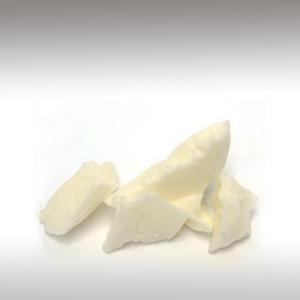
REFINED COCONUT OIL (COCOS NUCIFERA) - BASE OILS

BASE / GENERAL DATA
Information submited: March 1, 2015 Modified: May 9, 2018 By: OperaDreamhouse
Refined Coconut oil differs from Pure Coconut oil in many respects. First, won’t find the typical Coconut scent or taste of Coconut in the oil, unlike in Pure Coconut oil.
Refined Coconut oil is the most widely used form of Coconut oil worldwide, if not the purest or the best. It is also known by the name of RBD Coconut oil, which stands for refined, bleached, and deodorized Coconut oil.
Actually, the oil that is expelled directly from copra is not fit for consumption, since it may contain dust particles, insect remains, spawns, microbes, fungal spores and many other such substances that may be harmful for health. In almost every case, the kernels are cut open and spread open in the strong sun to dry, with their flesh facing the sun. They are kept like that for days, weeks, or even months until they dry up as desired. They are not even covered with nets.
There is no special technique involved in the extraction of Refined Coconut oil. In fact, no Coconut oil is refined when it is expelled. It is expelled from copra using a bullock or machine driven expeller, just like any other oil.
The best quality Refined Coconut oils are cleaned using a natural, chemical free process, which are A-okay for consumption.
The Refined Organic Coconut oil is processed using the organically approved methods of physical extraction and refining. For the extraction step, the Coconuts are broken into pieces and the Coconut meatis allowed to dry, and once it is dried, the meat or flesh of the Coconut is hydraulically pressed at 100 - 130 degrees to extract the oil. The resulting oil is passed through a filter press to produce the finished material, but it still has to go through the RBD (refining, bleaching and deodorizing) process. The refining, bleaching, and deodorizing process goes as follows:
Product is de-gummed through addition of citric acid.
Product is bleached through addition activated charcoal.
The filtering aid diatomaceous earth is added prior to filtering step, which removes the processing aidsadded in the previous steps.
Product is deodorized with steam and vacuum methods.
This physical refining process is entirely acceptable and approved under organic processing regulations. Note that the items added during the process (citric acid, activated charcoal, and diatomaceous earth) are classified as “processing aids” and not additives because they are entirely removed during processing and are not found in the finished product.
Being refined, it is certainly more hygienic than the crude Coconut oil, but not that beneficial from the point of view of health. It is left with almost no proteins or minerals due to this processing. However, its shelf life is longer than that of crude or Pure Coconut oil.
It is cheaper than the same crude oil when it comes with a “Pure Coconut oil” tag. Again, it is far cheaper than its other sisters like the Organic Coconut oil, Virgin Coconut oil and Organic Virgin Coconut oil.
If you’re looking for the benefits of Coconut oil’s fatty acids, you’ll still find them in the Refined oil.
Fatty Acids:
Caprylic - 11,57%
Capric - 6,66%
Oleic - 4,39%
Lauric - 48,78%
Linoleic - 0,95%
Myristic - 18,98%
Stearic - 1,75%
Refined Coconut oil is the most widely used form of Coconut oil worldwide, if not the purest or the best. It is also known by the name of RBD Coconut oil, which stands for refined, bleached, and deodorized Coconut oil.
Actually, the oil that is expelled directly from copra is not fit for consumption, since it may contain dust particles, insect remains, spawns, microbes, fungal spores and many other such substances that may be harmful for health. In almost every case, the kernels are cut open and spread open in the strong sun to dry, with their flesh facing the sun. They are kept like that for days, weeks, or even months until they dry up as desired. They are not even covered with nets.
There is no special technique involved in the extraction of Refined Coconut oil. In fact, no Coconut oil is refined when it is expelled. It is expelled from copra using a bullock or machine driven expeller, just like any other oil.
The best quality Refined Coconut oils are cleaned using a natural, chemical free process, which are A-okay for consumption.
The Refined Organic Coconut oil is processed using the organically approved methods of physical extraction and refining. For the extraction step, the Coconuts are broken into pieces and the Coconut meatis allowed to dry, and once it is dried, the meat or flesh of the Coconut is hydraulically pressed at 100 - 130 degrees to extract the oil. The resulting oil is passed through a filter press to produce the finished material, but it still has to go through the RBD (refining, bleaching and deodorizing) process. The refining, bleaching, and deodorizing process goes as follows:
Product is de-gummed through addition of citric acid.
Product is bleached through addition activated charcoal.
The filtering aid diatomaceous earth is added prior to filtering step, which removes the processing aidsadded in the previous steps.
Product is deodorized with steam and vacuum methods.
This physical refining process is entirely acceptable and approved under organic processing regulations. Note that the items added during the process (citric acid, activated charcoal, and diatomaceous earth) are classified as “processing aids” and not additives because they are entirely removed during processing and are not found in the finished product.
Being refined, it is certainly more hygienic than the crude Coconut oil, but not that beneficial from the point of view of health. It is left with almost no proteins or minerals due to this processing. However, its shelf life is longer than that of crude or Pure Coconut oil.
It is cheaper than the same crude oil when it comes with a “Pure Coconut oil” tag. Again, it is far cheaper than its other sisters like the Organic Coconut oil, Virgin Coconut oil and Organic Virgin Coconut oil.
If you’re looking for the benefits of Coconut oil’s fatty acids, you’ll still find them in the Refined oil.
Chemical structure:
Fatty Acids:
Caprylic - 11,57%
Capric - 6,66%
Oleic - 4,39%
Lauric - 48,78%
Linoleic - 0,95%
Myristic - 18,98%
Stearic - 1,75%

SPIRITUAL PRACTISES DATA

MEDICINE / HEALTH DATA

BEAUTY / COSMETICS DATA

FOOD / COOKING DATA
COMMENTS
No comments.
Newest mixtures containing Refined Coconut Oil (Cocos Nucifera):

Home made Monoi oil
March 1, 2015


